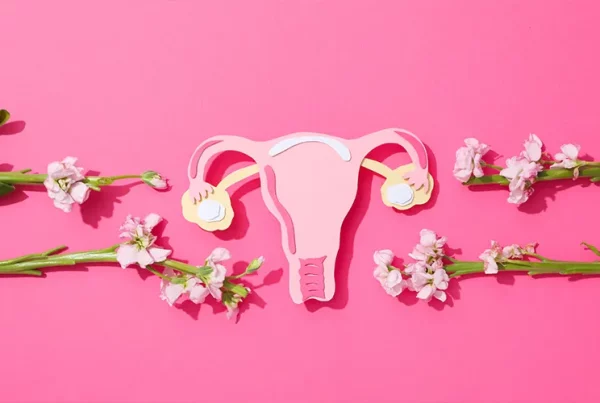
Although the pelvic floor plays an important and major role in pregnancy, many women are unaware of its function or even its existence, as most turn their primary focus and attention to the foetus and whether the baby is growing healthily.
However, having strong pelvic muscles before, during, and after pregnancy is incredibly important. In this article, we will explore what you need to know about the pelvic floor and how pregnancy affects it.
What is the Pelvic Floor?
The pelvic floor is hidden from view and is made up of muscles that span across the pelvis (very much like a hammock) and serve to support a woman’s pelvic organs—the bladder, uterus (womb), and rectum (bowel). This support is crucial not only for organ placement but also for the regulation of important bodily functions, such as urination, bowel movements, and, for many women, sexual health.
How your pelvic floor can be affected by pregnancy
Before your first pregnancy, it is typically strong and provides solid support to all your pelvic organs.
However, like many other parts of your body, it responds to hormonal changes during pregnancy by stretching and loosening. The weight of your growing baby also adds to the extra strain, particularly in the second and third trimesters, as your belly expands.
Labour and childbirth can also affect it, with some women experiencing trauma, especially during vaginal deliveries and assisted methods like vacuum or forceps extraction. This trauma may weaken the pelvic floor and lead to dysfunction later in life, such as pelvic organ prolapse and urinary incontinence. How this occurs is attributed to multiple factors, including mechanical pressure and injury to blood vessels or nerves as the baby’s head descends through the birth canal.

How you can protect and strengthen your pelvic floor during pregnancy
As such, protecting and strengthening it is vital for supporting your growing baby and ensuring your comfort and well-being during pregnancy. Here are some practical tips to help you improve your pelvic floor health throughout this journey:
1) Pelvic Floor Exercises: These exercises, often referred to as Kegel exercises, are specifically designed to strengthen the muscles that support your pelvic organs. The exercises involve contracting and relaxing the muscles in a controlled manner. Regular, gentle Kegel exercises during pregnancy can help improve your muscle tone and endurance, reducing the risk of issues such as prolapse and urinary incontinence. Your healthcare provider or a pelvic health physiotherapist can guide you on the correct technique and frequency of these exercises to suit your individual needs.
2) Maintain Good Posture: Throughout pregnancy, your body undergoes significant changes that can impact your posture. Proper posture—whether sitting, standing, or moving—is essential for supporting the pelvic floor and reducing strain on the lower back. Practise aligning your body correctly by keeping your shoulders back, chest lifted, and pelvis in a neutral position. Avoid slouching or arching your back excessively, as these postures can increase pressure on the muscles and contribute to discomfort.
3) Stay Hydrated and Eat Well: Adequate hydration and a balanced diet are fundamental for overall health during pregnancy and specifically for supporting pelvic floor function. Drinking plenty of water helps maintain hydration levels and promotes regular bowel movements, which also assists in preventing constipation—a common issue that can strain the muscles. Include foods rich in soluble fibre, such as fruits, vegetables, whole grains, and legumes, in your diet to further support digestive health and reduce the risk of constipation-related strain.
4) Focus on Breathing: Proper breathing techniques can significantly benefit its health by enhancing muscle coordination and relaxation. During pregnancy, practising diaphragmatic breathing—where you breathe deeply into your abdomen, allowing it to expand fully—can help engage and support the muscles. Avoid shallow chest breathing, which can contribute to increased tension in the pelvic area. Incorporate moments of mindful breathing throughout your day to promote relaxation and improve overall function.
Include these practices in your daily routine to maintain optimal pelvic floor health during pregnancy and beyond. Remember to consult your healthcare provider for personalised guidance and support tailored to your specific needs and pregnancy journey.
Frequently Asked Questions
Does pregnancy ruin your pelvic floor?
Whilst it is known that your pelvic floor stretches in response to hormonal changes and the increasing weight of your fetus throughout pregnancy, it does not necessarily “ruin” your pelvic floor. Most importantly, you should be aware of your pelvic floor changes in pregnancy and start your pelvic floor exercises as early on in pregnancy as possible, continuing them well into your postpartum days.
Does a weak pelvic floor make getting pregnant difficult?
No. The ability to get pregnant (aka conceive successfully) is a complex interplay of elements involving age, uterus, fallopian tubes, ovaries, ovulation, egg quality, sperm and other lifestyle factors. Neither a weak (or strong) pelvic floor affects your chances of conceiving.
Will my pelvic floor muscles become stronger by themselves?
No – as Helena Rubinstein famously said – there are no ugly women, only lazy ones. The same goes for your pelvic floor; it is not possible for your muscles to get strong by themselves without you putting in a concerted effort to strengthen them on a consistent basis. Conversely, if you do not do anything for your pelvic floor – risk factors like age, menopause, pregnancy, childbirth and chronic abdominal straining can result in continued weakening of your pelvic floor over time.
What happens if my pelvic floor is too tight?
Pelvic floor overactivity refers to a condition where your pelvic floor muscles are overly contracted with a baseline level of tension and there is difficulty in relaxing. Over time, this can eventually affect your urinary, gastrointestinal, sexual function, including a sensation of discomfort and pain.
Does having a strong pelvic floor help with labor and delivery?
Having a strong pelvic floor may not help directly with your chances of a fast or smooth labor and delivery, but it can go a long way in decreasing the effects of damage that the pelvic floor undergoes throughout pregnancy and childbirth.
Should I choose C-section for delivery so my pelvic floor is not affected?
Although there have been studies showing reduced risk of pelvic organ prolapse and urinary incontinence following C-section versus vaginal delivery, it is important to note that C-section does not come without its own set of risks, including the risk of bleeding, wound infection, injury to surrounding organs, as well as implications on subsequent pregnancies such as scar rupture and abnormal placenta implantation. Keep in mind that the mode of delivery is also just one of many risk factors that can contribute to pelvic floor dysfunction later on in life – you should discuss your concerns with your ObGyn who can then take your individual pregnancy circumstances into consideration and make a joint, holistic decision about what is best for you.
Conclusion
Pregnant or not – as long as you are a woman, empower yourself with this knowledge and understand the importance of looking after your pelvic health!
So don’t shy away from issues involving your pelvic health. Seek care from a urogynaecologist who can answer all your questions and teach you all you need to know about your body. At SMG Women’s Health, our O&G clinics are conveniently located across Singapore to support you with advice, customised exercises, and care throughout your pregnancy journey.
Contact us today to schedule a consultation and learn how we can help you maintain a healthy pelvic floor and overall well-being.



